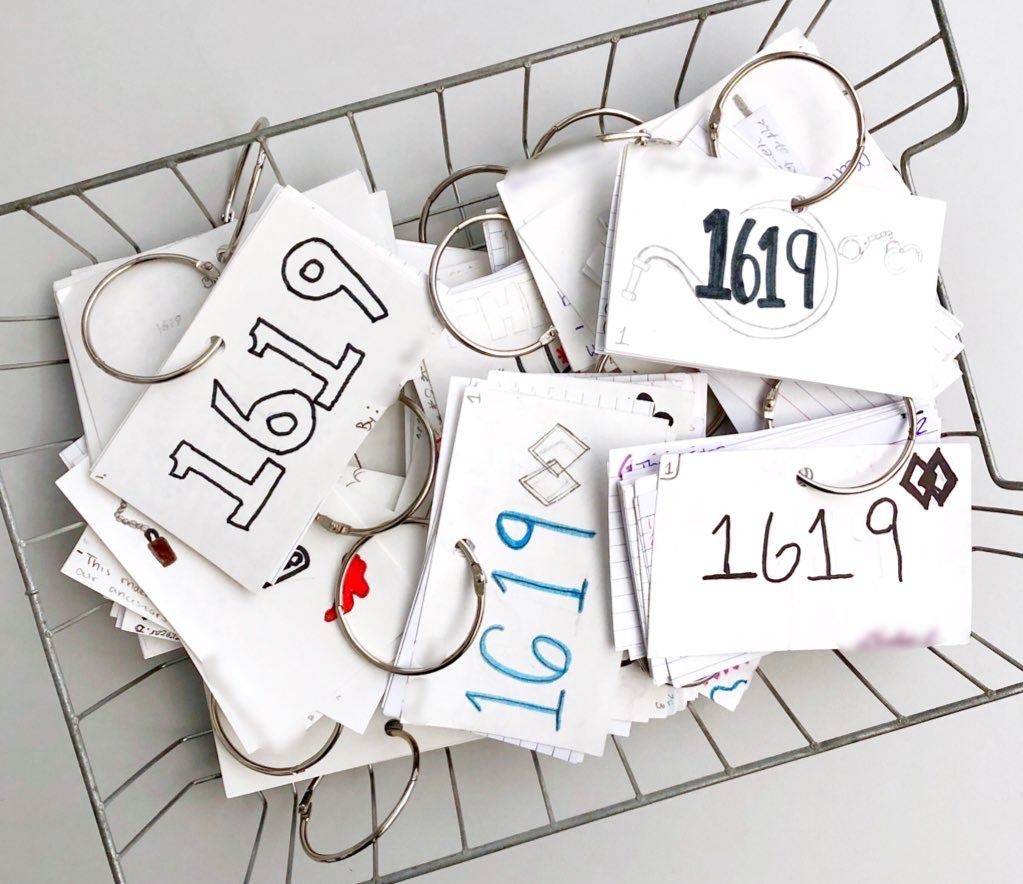The following reflection was written by Uneq’ka McNeal, who is an educator with the Montessori School of Englewood in Chicago, Illinois. McNeal was part of the Pulitzer Center's 1619 Project Afterschool Partnership program during the 2022-23 school year, which culminated in partners facilitating activities that engaged students in learning about the legacy of enslavement and the contributions of Black Americans in their programs. The video above was also created by McNeal and her students.
I am an educator who has focused on art, music, psychology, social-emotional learning, and African American history. The students in my program are mostly from the neighborhood of Englewood in Chicago. This community is known to be lower socioeconomic status and high in violence. Many of the students have an experienced trauma related to these issues. Our school encourages an inner community of peace and nurtures their educational and social understandings.
This information is necessary to understand what is happening in society, but can be very emotional and heavy. It’s important to pull out the positive things that are happening and allow [students] to have a space to create and envision what change looks like for their own generation.
I integrate The 1619 Project training and curriculum into music and social-emotional learning programming. It was important to share The 1619 Project in this context because it gave the students an outlet to express what they have learned as well as their personal reflections regarding the content. For our group, it was very important to connect the history to what we are experiencing currently, so that we have a proper understanding on how to create change within our community that has been affected by social trauma and a lack of historical information.
During their introduction to 1619, our students listened to many episodes of the podcast. We discussed how erasure affects our learning and our community, and students participated in an activity in which they discussed what freedom and democracy looks like to them personally. Building on that discussion, students chose to do a soul food project because the creation of soul food and the tradition of gathering together around a meal has been a symbol of freedom and democracy for many of our ancestors.
The focus overall with our group was to do our best to pull out the positive from a negative situation. We explored how our ancestors were able to persevere and be creative and innovative in these moments of oppression. Students were eager to share their understanding of resilience through their writings and final project. Many students reflected that they were excited to learn nontraditional history, and that it helped them to see the truth and gain a deeper perspective.
Watch the video above to hear students share what soul food and the tradition of gathering together for a meal means to them.
In preparing and facilitating these activities and classes focused on The 1619 Project, I learned to allow a space for students to reflect and express themselves after receiving information. I learned how important it is to balance heavy information with the positive aspects that have come out of this history. There were many moments where my beliefs and feelings as an educator and African American woman were challenged, and I allowed my students to express themselves and was able to learn different perspectives.
My advice to educators who are implementing The 1619 Project in afterschool programs is to find a way to always bring balance to this topic. Your youth may already be dealing with high levels of stress and trauma due to their environment. This information is necessary to understand what is happening in society, but can be very emotional and heavy. It’s important to pull out the positive things that are happening and allow them to have a space to create and envision what change looks like for their own generation.






